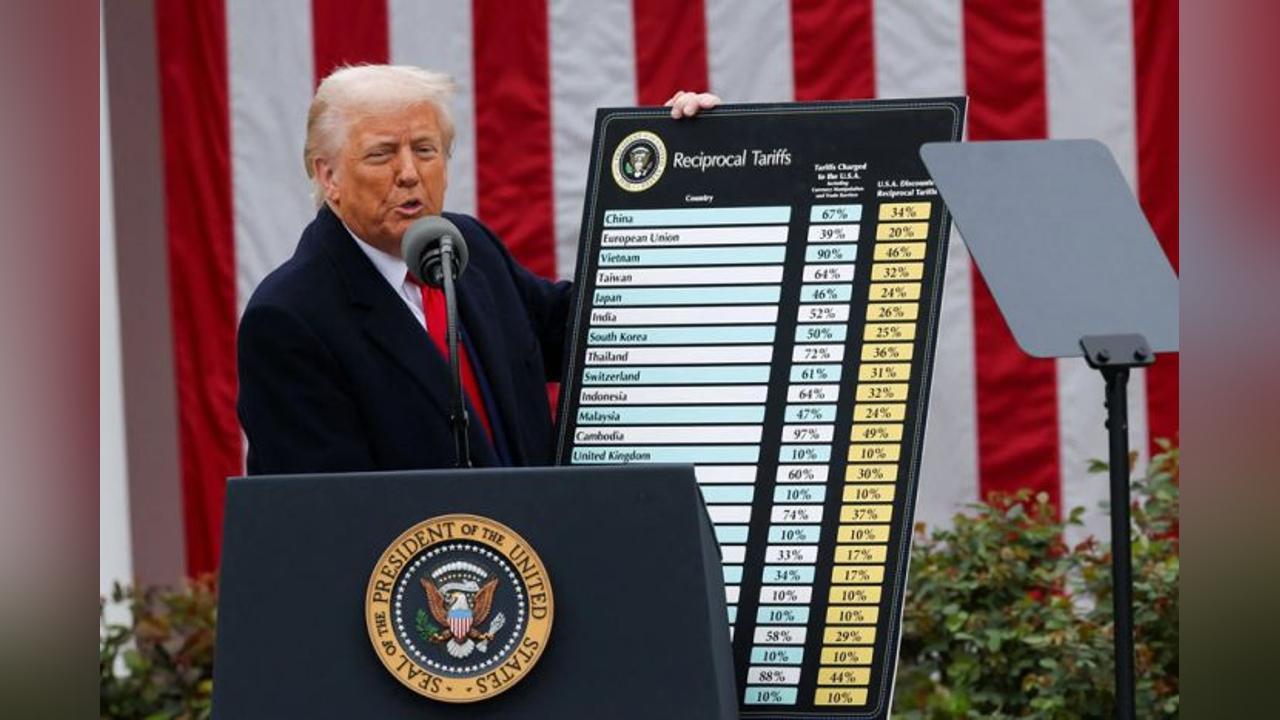Africa-Press – Angola. The trade war unleashed by the President of the United States, Donald Trump, promises to have an impact on Angola and it will not be through the announcement of a reciprocal tariff of 32%, which has since been suspended for 90 days.
Nor by creating doubts about the consistency of the bilateral relationship that was achieved during Joe Biden’s term as president, materialized in the decision to make Luanda the venue for the US-Africa business summit to be held in June.
One side effect of this trade war is the expected slowdown in economic activity, a scenario that has repercussions on the price of oil. With less demand, the price of this raw material is on a downward trajectory and this will affect Angola’s public revenue, both through sales and tax collection.
Oil accounts for 55% of Angola’s tax revenues and two-thirds of this, 66.4%, is used to pay debt service. This means that the lower the revenue, the greater the pressure on the treasury.
The trade war unleashed by US President Donald Trump promises to have an impact on Angola, not by announcing a reciprocal tariff of 32%, which has since been suspended for 90 days. Nor by creating doubts about the consistency of the bilateral relationship that was achieved during Joe Biden’s term as president, embodied in the decision to make Luanda the venue for the US-Africa business summit to be held in June.
One side effect of this trade war is the expected slowdown in economic activity, a scenario that has repercussions on the price of oil. With less demand, the price of this raw material is on a downward trajectory and this will affect Angola’s public revenue, both through sales and tax collection.
Oil accounts for 55% of Angola’s tax revenues and two-thirds of this, 66.4%, is used to pay debt service. This means that the lower the revenue, the greater the pressure on the treasury.
In 2024, Angola generated revenues of €28.1 billion from the export of 393.4 million barrels of crude oil, which were sold at an average price of US$79.7. China led the export destination for crude oil, with 51.91%, followed by India with 10.02%, Spain with 6.27% and Indonesia with 4.81%. Even China’s oil needs are on a downward trend due to the increase in sales of electric vehicles in the country.
Less investment in prospecting
The current situation validates the warnings issued by the IMF (International Monetary Fund) in February of this year. In its latest analysis of Angola, under Article IV, the organization stressed that the high external debt service is a limitation on development spending and that dependence on oil continues to be an obstacle to sustainable growth.
“Liquidity risk could intensify if financing conditions deteriorate, further reducing social spending and putting pressure on the exchange rate,” the IMF warned.
The price of a barrel of oil was at $64 on Monday, recovering from $60 last week. However, it is still below the $70 value that was considered by the Government in the General State Budget for the current year. Thus, although Sonangol assures that it will maintain production of one million and 98 thousand barrels of oil per day, the reality is that the financial income will be foreseeably lower. The current budget foresees revenue in the order of $35 billion.
Angola left OPEC (Organization of the Petroleum Exporting Countries) in January this year, in order to be able to increase production without being limited by the quotas imposed by this cartel, which the Government disagreed with because they limited the growth of oil production.
In the short term, oil prices will be difficult to recover, given the expected slowdown in the global economy. Although the US President has announced a 90-day pause in tariffs, the volatile climate will continue to dominate the markets, dragging down the price of this commodity.
Another impact of this reduction in demand will tend to be a slowdown in research and prospecting activity. In other words, with the market in retraction, it is possible that some investments will be put on hold, for example, the prospecting agreements signed in February between the National Petroleum and Biofuels Agency and TotalEnergies and ExxonMobil, to study and assess the potential of the Free Areas of Blocks 17/06 and 32/21, “offshore”.
The Angolan National Oil, Gas and Biofuels Agency continues to award new concessions, estimating another 10 by the end of the year, which will join the 40 already granted, but the next step, that of investment, will be much more difficult to achieve in a scenario of market stagnation.
angola24
For More News And Analysis About Angola Follow Africa-Press






